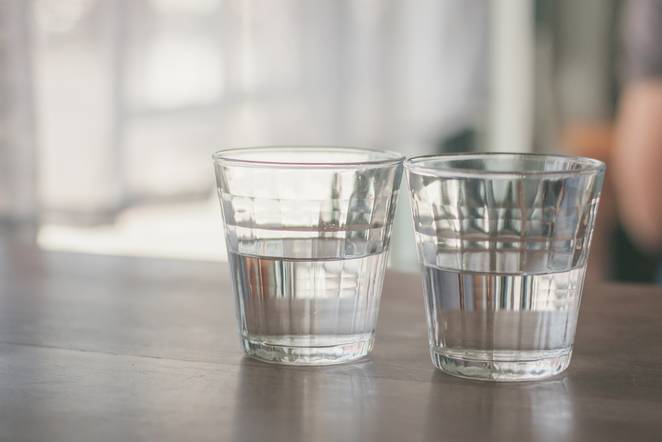6 Signs That Your Home Has Hard Water

Hard water is something that can happen to anyone. Both the city water supply and well water can be hard, up a mountain or down by the coast. The only thing that controls whether or not you have hard water is the mineral content of your stone and soil in the region. If your area has a great deal of calcium and magnesium, it will get picked up by rainwater as it heads to the aquifer, seep into underground water storage, and wind up running through your tap. The municipal water filtration doesn’t get rid of these extra minerals because they’re not officially a hazard to your health but even it if won’t make you sick to ingest, hard water is hell on your pipes and some people even develop skin problems in response.
Does your home run hard water and, if so, are you suffering negative effects because of it? To help you find out, here’s a quick list of the top 6 clear signs that your taps are running hard water.
1) Pipes Clog for ‘No Reason’
Those extra minerals in hard water are problematic not because they’re in the water but because they cling to absolutely everything the water flows past or through. This means the insides of your pipes get coated in calcium, the same stuff your bones are made of. As the buildup continues, your water pressure may drop and eventually slow to a clogged trickle because water can’t get through. Chemical drain cleaners can help, but more drastic measures are often required to clean pipes that feed your faucets. If your pipes are constantly misbehaving and clogging, you may have hard water.
2) Scale on Your Sinks and Tubs
Another very clear sign of hard water is something known in the plumbing industry as ‘scale’. This is a special composite of calcium and magnesium that builds up anywhere hard water has been. The same stuff that can clog your pipes also builds up on the surface of your sinks, faucets, tubs, and shower walls. If you’re constantly scrubbing off a flaky off-white residue that requires vinegar or CLR to really get rid of, then you definitely have hard water.
3) Stiff or Sour Clothes After Washing
All those extra particles suspended in hard water actually makes it more difficult to clean with because the soap can’t sud and this problem isn’t just in your mop bucket. Washing clothes in hard water takes extra hot water and harsher soaps. Otherwise, you’re at risk of the low suds and mineral deposits leaving your clothes stiff and sour after washing. If your clothes don’t seem to get clean in the wash and possibly have started to show signs of discoloring, this is a clear sign of hard water.
4) Crusty Water Spots on Dishes
Another indication that your water is leaving mineral deposits is the state of your dishes when they come out of the dishwasher. Normally, you expect sparkling clean dishes and glassware. Perhaps if you’re out of rinse aid, there might be a little spot or two on the clear glass. With hard water, on the other hand, rinse aid will have a hard time counteracting the big crusty white-ish spots left on your dishes and glassware.
5) Appliance Repairs
Your plumbing isn’t the only water channeling infrastructure that takes a licking when you’re constantly running hard water. Your appliances that need water like the clothes washer, dishwasher, and coffee machine all suffer the same ill effects. If you are noticing problems with your water-based appliances or getting repairs more often than seems reasonable, you may well be dealing with damage caused by hard water buildup.
6) Persistent Breakouts
Finally, it’s important to remember that you don’t just wash clothes and dishes in the hard water, you wash yourself as well. With normal water, a hot shower is a great way to get clean and many people wash their faces more than once a day to both their pores and skin clear. However, living in a house with hard water it might seem like no matter how much you wash, you’re still experiencing a persistent breakout. This is because scale can even build up in your pores, clogging them just like they clog your pipes and causing uncomfortable and unattractive blemishes.
How many signs of hard water does your house have? Due to different levels of minerals, every home and family’s experience is a little bit different but there are always a few signs. If you can identify more than one of these signs in your home and are through dealing with the problem, it may be time to get a home water softening system. Contact us today for expert advice and assistance getting those extra minerals out of your water to save your pipes, appliances, and skin all at once.





1 Comment
Comments are closed.